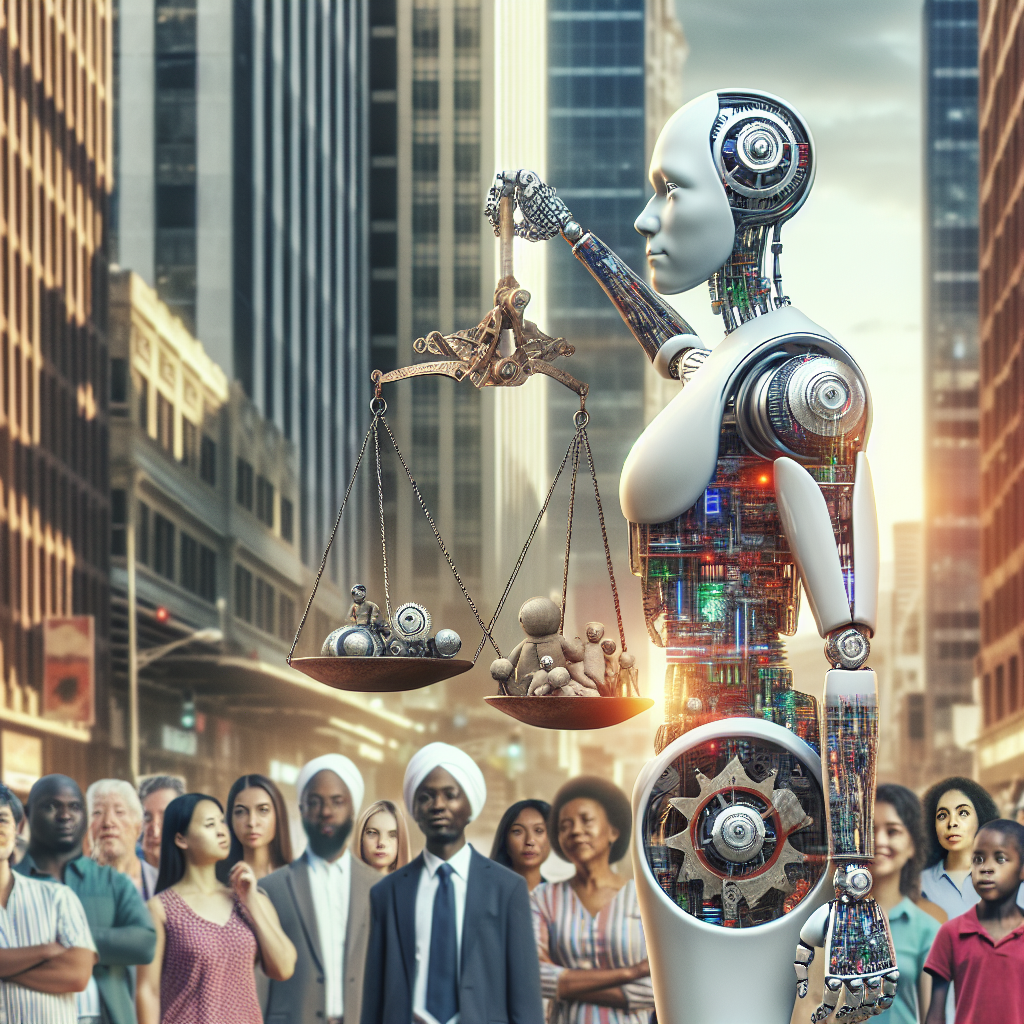In recent years, artificial intelligence (AI) has become increasingly integrated into our daily lives, from smart home devices to personalized online recommendations. While AI has the potential to revolutionize industries and improve efficiency, there are also concerns about its ethical implications. As AI becomes more advanced and autonomous, it is essential to prioritize ethical considerations to ensure that it is used responsibly and in the best interest of society.
The Importance of Ethical AI
1. Fairness and Bias: One of the key ethical concerns surrounding AI is fairness and bias. AI systems are trained on data sets that may contain biases, which can lead to discriminatory outcomes. For example, AI algorithms used in hiring processes may inadvertently discriminate against certain groups based on gender or race. It is essential to address these biases and ensure that AI systems are fair and inclusive.
2. Transparency and Accountability: Another important aspect of ethical AI is transparency and accountability. AI systems often operate as black boxes, making it difficult to understand how decisions are made. This lack of transparency can lead to mistrust and raise concerns about accountability. It is crucial to develop mechanisms to ensure that AI systems are transparent and that there is accountability for their actions.
3. Privacy and Security: AI systems collect and analyze vast amounts of data, raising concerns about privacy and security. It is essential to protect the privacy of individuals and ensure that their data is used responsibly. Additionally, AI systems must be secure to prevent malicious actors from exploiting vulnerabilities and causing harm.
4. Human Control and Autonomy: As AI becomes more advanced, there is a growing concern about the potential loss of human control and autonomy. It is essential to ensure that AI systems are designed to support human decision-making rather than replace it. Human oversight is critical to ensure that AI systems are used ethically and in the best interest of society.
5. Social Impact: AI has the potential to have a significant impact on society, from job displacement to changes in social norms. It is essential to consider the social implications of AI and ensure that its deployment is done in a way that benefits society as a whole. Ethical considerations must be integrated into the development and implementation of AI systems to address these concerns.
FAQs
1. What is ethical AI?
Ethical AI refers to the design, development, and deployment of artificial intelligence systems that prioritize ethical considerations such as fairness, transparency, privacy, and human control. Ethical AI ensures that AI systems are used responsibly and in the best interest of society.
2. Why is ethical AI important?
Ethical AI is important because it ensures that AI systems are fair, transparent, and accountable. It protects the privacy and security of individuals and ensures that human control and autonomy are maintained. Ethical AI also considers the social impact of AI and ensures that its deployment benefits society as a whole.
3. How can biases in AI be addressed?
Biases in AI can be addressed through careful data collection and preprocessing, algorithmic transparency, and ongoing monitoring and evaluation. It is essential to identify and mitigate biases in AI systems to ensure that they are fair and inclusive.
4. How can transparency and accountability be ensured in AI systems?
Transparency and accountability in AI systems can be ensured through the use of explainable AI techniques, clear documentation of decision-making processes, and mechanisms for auditing and oversight. It is essential to make AI systems transparent and accountable to build trust and ensure responsible use.
5. What measures can be taken to protect privacy and security in AI systems?
Measures to protect privacy and security in AI systems include data encryption, anonymization techniques, access controls, and regular security audits. It is essential to prioritize privacy and security in the design and deployment of AI systems to prevent unauthorized access and misuse of data.
In conclusion, ethical AI is crucial in today’s society to ensure that AI systems are used responsibly and in the best interest of society. By prioritizing ethical considerations such as fairness, transparency, privacy, and human control, we can harness the potential of AI while mitigating its risks. It is essential for policymakers, researchers, and industry stakeholders to collaborate and develop ethical frameworks for AI to address these concerns and build trust in AI technologies.

